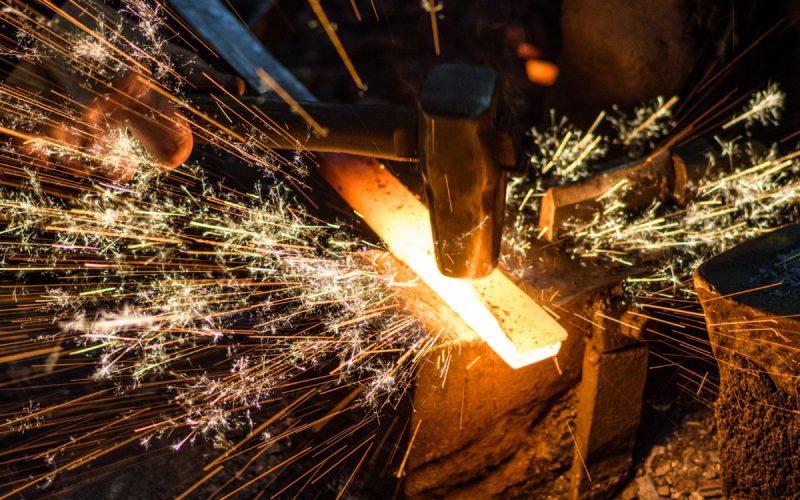Metalworking is both an art and a science, a craft honed through the centuries, from blacksmiths of antiquity to modern-day industrial engineers. For those passionate about it, understanding and practicing good metalworking techniques is crucial.
Whether you’re an aspiring hobbyist or an artisan looking to enhance your trade, these five indispensable tips for professional metalworkers will elevate your forging knowledge so that you can leave your mark on the world.
1. Consistency Is Key: Calibrate Your Equipment Regularly
In life, there are many things that get better as you use them. It’s no different in the metalworking industry, where precision is non-negotiable.
Whether working with sheet metal, molten steel, or intricate components, the slightest variance can lead to costly errors or compromised quality. The key to maintaining precision in your work is regularly verifying and adjusting every tool and machine you use—from your tiniest hand-operated devices to your largest industrial equipment.
2. Material Matters: Selecting the Right Alloy
Different metals have different properties and behaviors, so selecting the right alloy for your project is vital. Consider the intended use, environmental factors, and the aesthetic you want to achieve.
Stainless steel is robust and corrosion-resistant, whereas aluminum is lightweight and perfect for high-polish finishes. Understanding the characteristics of the metal you’re using is the first step toward ensuring a successful outcome.
3. Planning for Accuracy: The Significance of Design and Measurement
Meticulous planning and precise measurement are essential before you even strike the first blow. High-quality metalworking begins with a sound design.
Even the best craftsmanship will falter without a blueprint that accounts for structural integrity and functional form. Precision in planning leads to efficiency in execution, saving you time and materials.
4. Safety First: Protocols That Protect
The metalworking environment can be hazardous due to the physical demands, the use of high-powered machinery, and the potential for toxic fumes from certain metalworking processes. Prioritizing safety protocols is not merely a legal obligation but a moral one.
Develop a comprehensive safety training program for all employees, regularly review safety protocols and procedures, and encourage open communication about any concerns that arise.
5. Emphasizing Tool Maintenance: Longevity of Your Equipment
Proper tool maintenance is an indispensable aspect of metalworking that ensures both the longevity of your equipment and the quality of your work. Regularly cleaning your tools to remove any buildup of grime or metal shavings prevents deterioration and potential defects in your metalwork.
Sharpening cutting tools and bits is crucial for precision cuts and can dramatically reduce the physical effort required on your part. Furthermore, understanding how coolants help extend your metal-cutting tool’s life will ensure you maximize your investment.
Show Your Dedication to the Craft
Metalworking is a disciplined craft that rewards those who approach it with meticulous attention to detail and a thirst for knowledge. Every piece that you create is a reflection of your dedication to the craft.
With these five tips for professional metalworkers, you’ll have all the forging knowledge you need to succeed in your career or hobby.

